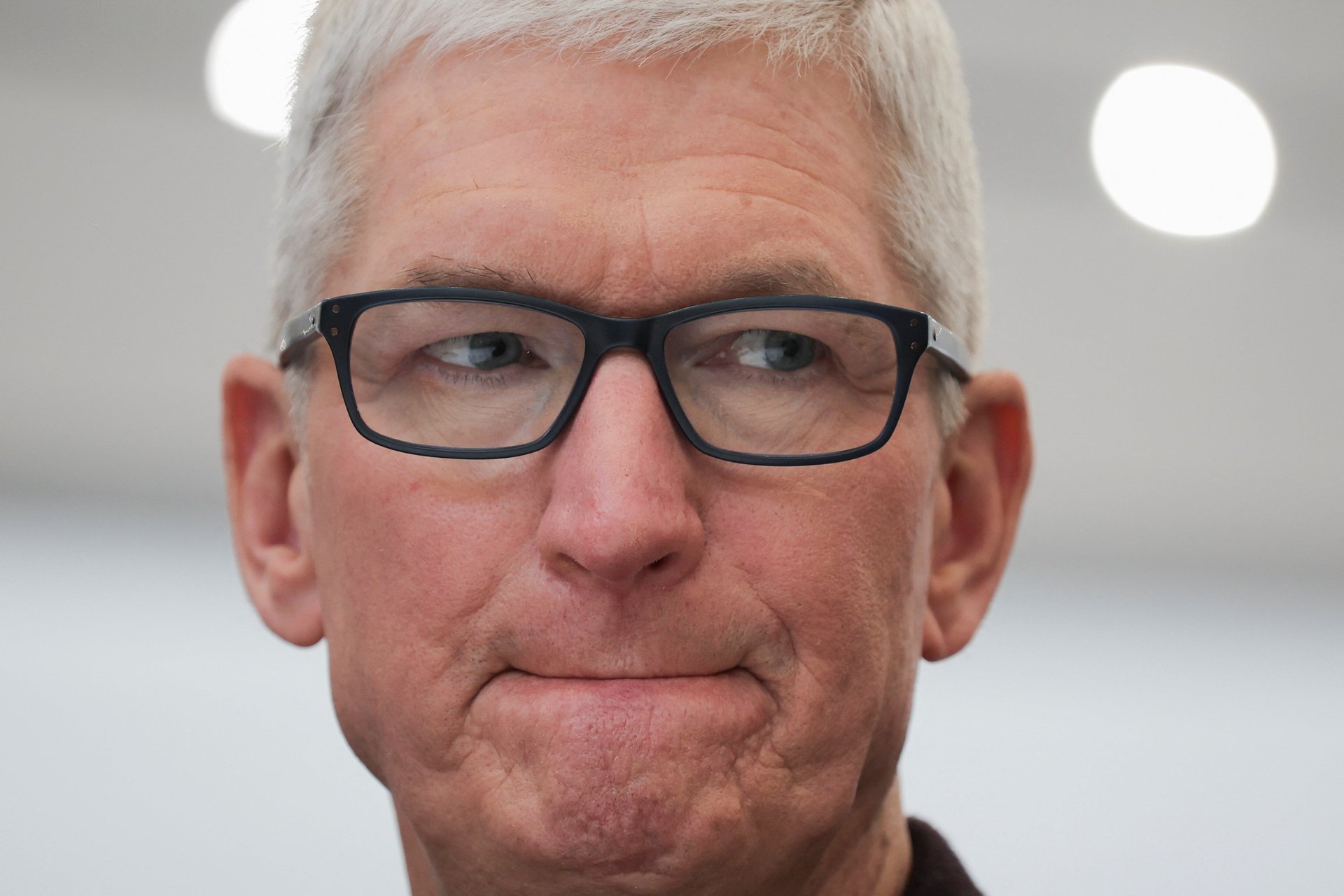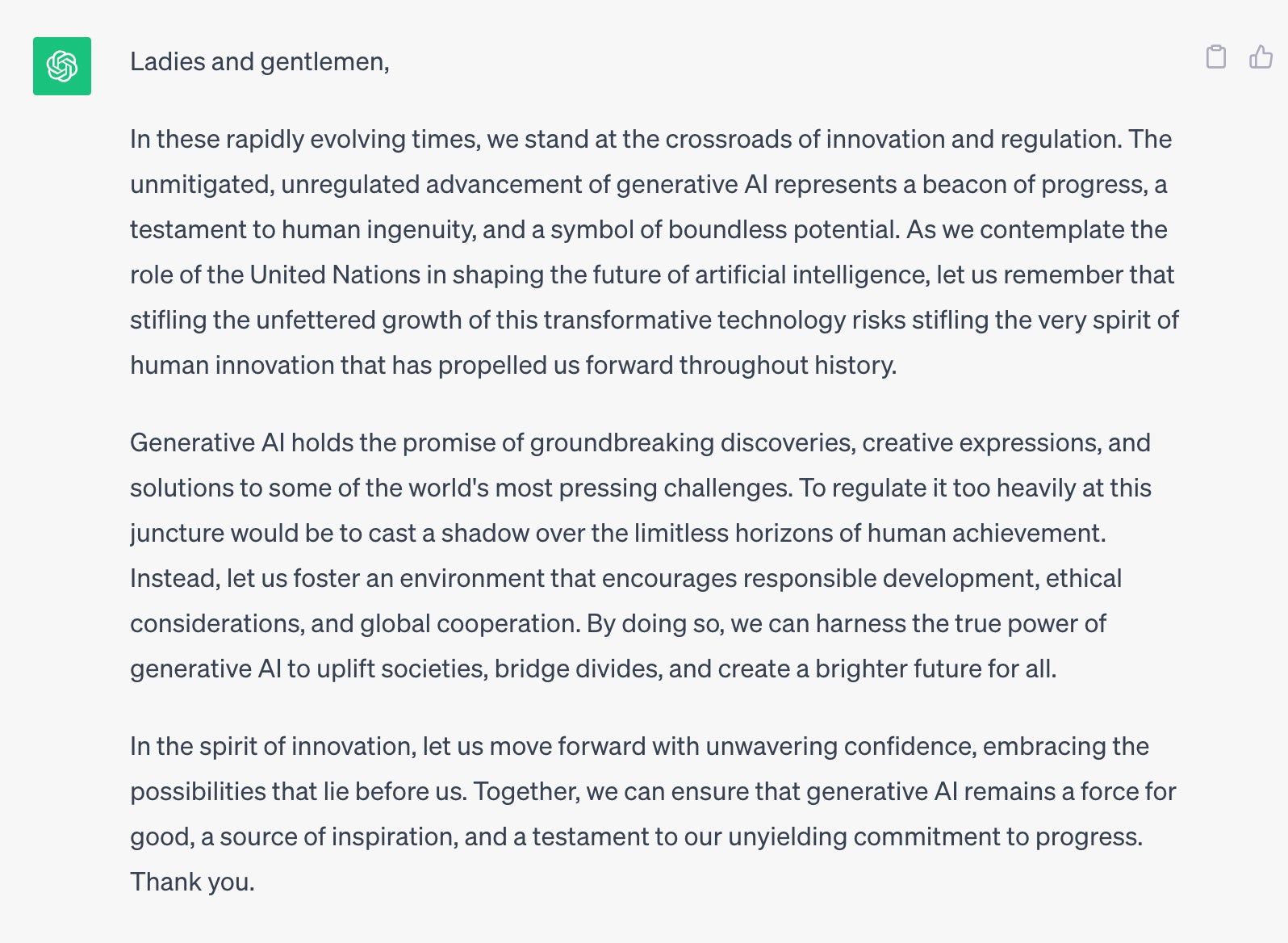AI in Focus: One quiet Apple outspends the whole barrel
Plus: Employers need to think about AI negotiations

Hello, fellow humans! Hope you’re enjoying the new, limited Saturday edition of the Daily Brief, which is focused on AI, though, we promise, written by actual people.
Suggested Reading
Got some questions about AI you’d like answered? Or just some AI hallucinations you’d like to share? Email us anytime. Enjoy!
Related Content
Here’s what you need to know
Amazon just made a $4 billion bet on AI. The e-commerce giant is now a minority stakeholder in the AI startup Anthropic, which in turn will use Amazon’s chips to power its generative AI systems.
OpenAI is looking for a huge new valuation. The ChatGPT maker wants $80-90 billion, which is based on its stated revenue expectations of $1 billion this year. The company would also allow employees to sell shares to investors.
ChatGPT can actually chat now. Use your voice, use your ears, use images, but also use your wallet.
Getty Images is making its own AI image generator. After suing Stability AI for training on its pictures without permission, the iconic image library has announced it’s taking matters into its own hands.
Apple’s been on an AI shopping spree
You’ll find a lot of names in this newsletter—Microsoft, Google, Meta, Amazon. But when it comes to companies announcing new AI technologies, there’s one name you don’t see so often: Apple, the largest company in the world by market cap, is noticeably low-key about its AI investments.
But don’t mistake its silence for inaction: Apple is very much in the game. In fact, it’s been snapping up more AI companies than any of its peers. Its acquisitions include:
🚗 Drive.ai, a self-driving technology developer
🧵 PullString, a voice assistant developer likely making Siri smarter
🎼 AI.Music, a composer creating dulcet tones
🌊 WaveOne, a digital image compressor generating AI images
🧐 Curious AI, a predictive tool suggesting the next business opportunity
Michelle Cheng reports on how Apple became AI’s biggest buyer, and why all this spending means we’ll see AI integrated into our iPhones and Macs soon.
Employers: Your labor force is thinking about AI
The victory of Hollywood’s striking screenwriters isn’t the stuff of movies—it’s real. In a tentative agreement reached this week, the Writers Guild of America won a huge concession from the studios: firm parameters around the use of AI. Those parameters include:
🤖 AI isn’t permitted to write or rewrite material (translation: AI can’t replace writers)
🤖 Writers can’t be forced to use AI in their work, but they can choose to
🤖 Employers will be required to disclose if they give writers AI-written material
Industries aren’t going to be able to back away from these fights. But while the battle for AI worker protections feels new, Quartz’s Gabriela Riccardi writes, they actually date back centuries. She explains why in the latest edition of The Memo, our free weekly email covering the world of modern work. Sign up here—it’s written by humans!
Meta isn’t that meta anymore
This week, Meta held its annual developer conference and, despite its radical name change that promised the coming of the metaverse, the Facebook parent company is now singing more about the wonders of AI than the promise of virtual reality.
Meta’s new AI endeavors include celebrity-inspired assistants and something called Meta AI, a conversational AI assistant that will be available on WhatsApp, Messenger, and Instagram in the US. But beneath the surface lies a plea to stay relevant.
Of course, Big Tech companies can, for better or worse, afford to make a lot of bets. Meta can invest in Facebook while pouring money into riskier things like the metaverse and AI assistants.
What matters more isn’t that these tools succeed, but that they all help one central Meta mission: to collect data on how users engage with them, Quartz’s Michelle Cheng writes.
Ask an AI
A few brief years ago, AI got nary a mention at arguably the world’s largest meeting of the minds: the United Nations General Assembly, which wrapped its annual convocation of global leaders in New York last week.
The meeting’s main stage heard more than 20 mentions of artificial intelligence chatter this year—a sharp increase from five years prior, which counted just three. Now some are asking: should the United Nations be the body to tackle AI regulation?
We wanted to know how a chatbot might present it itself on the world’s stage. So we asked ChatGPT to prepare a short speech advocating for the unregulated advancement of generative AI to deliver to the General Assembly.


Well, ChatGPT exceeded its allotted time on the floor. But it does offer some compelling talking points—unwavering confidence, global cooperation, the “very spirit of human innovation” (which reads like flattery to this human, and it’s working). Ultimately, our panel decides that the motion to let AI run reckless and unregulated does not pass.
Our best wishes for a very human day. Send any news, comments, inspiring speeches, and suggested new names for Meta to [email protected]. Reader support makes Quartz available to all—become a member. Today’s AI Daily Brief was brought to you by Michelle Cheng, Morgan Haefner, Scott Nover, Gabriela Riccardi, and Susan Howson.